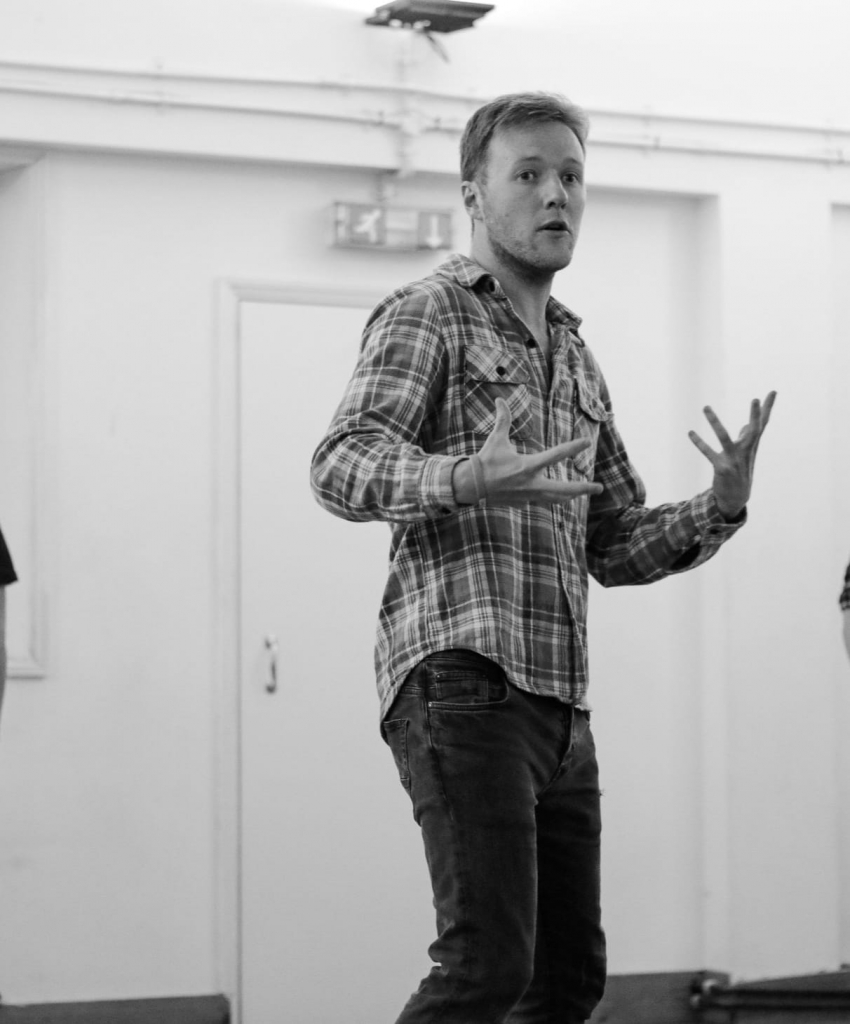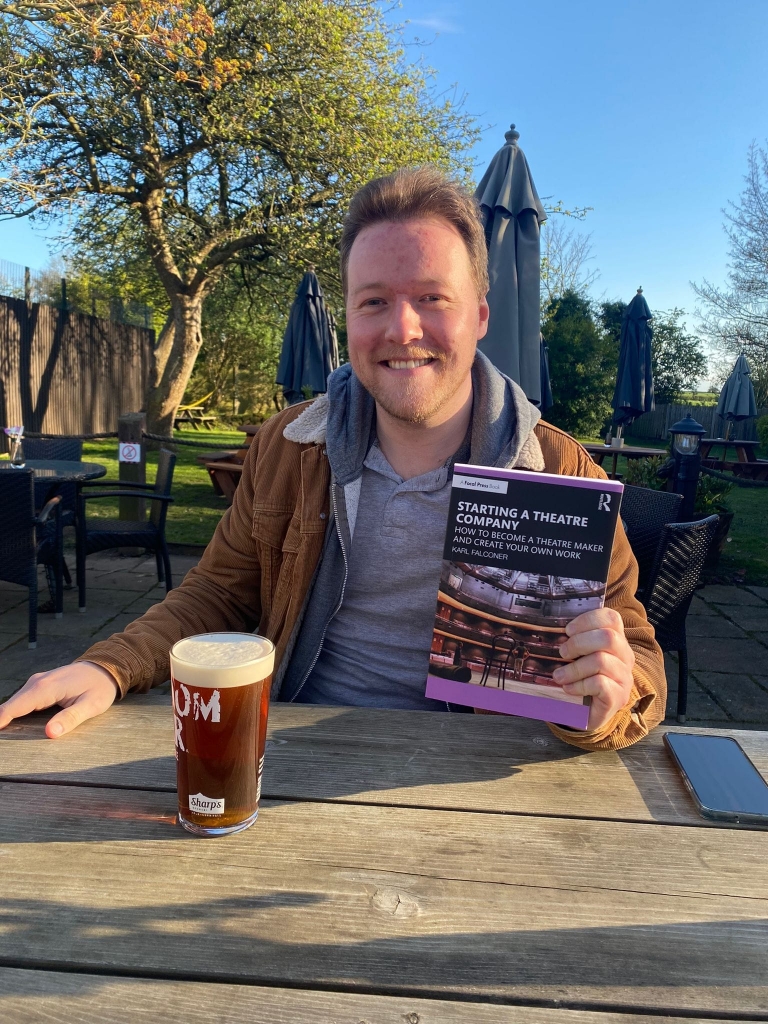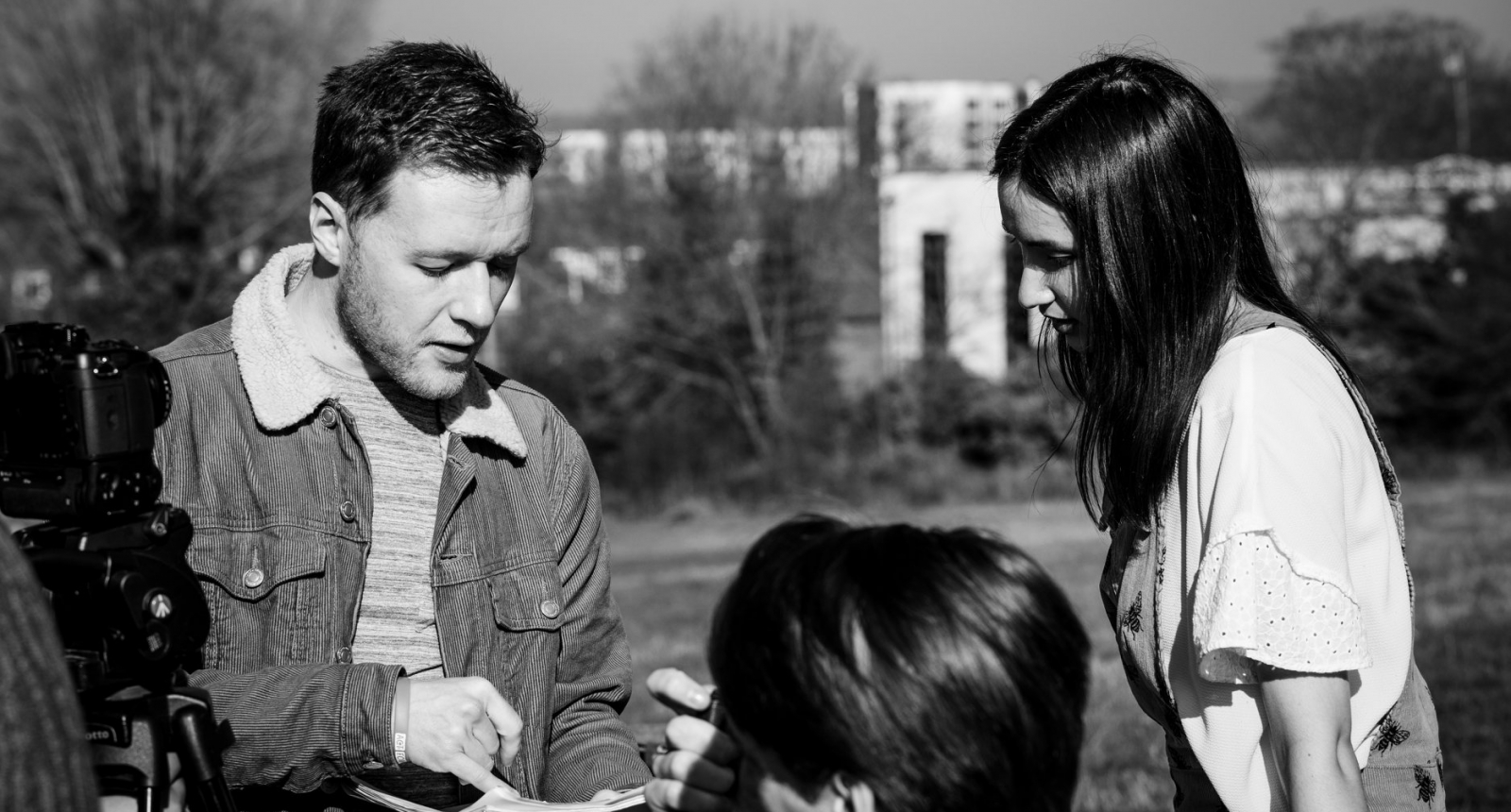Karl Falconer studied ‘TV and Radio Production’ at The University of Salford but has now made the jump to the world of theatre, and has just published his first book helping other people open their own theatre companies. We caught up with Karl to find out about his journey from Salford to author & theatre director.
What made you choose The University of Salford?
I came to Salford just as the move to the Quays was underway. As someone who definitely couldn’t afford to move and study in London, the opportunity to be part of such a well-resourced university near home offered the best of both worlds. With the kit and resources the uni has developed since I graduated, I’m really envious of the people who get to study there today.
Tell us about your journey from Salford student, to where you are now
I started my production company whilst studying at Salford, and this meant that I was able to graduate with a strong showreel and a demonstrable set of skills beyond what I’d learnt in lectures. We had £10 when we started and we didn’t really know what we were doing, but we stuck at it and committed ourselves to constantly learning and making each project better than the one before. A year after graduating I was part of the Virgin Media Shorts final where I got to meet Shane Meadows and make some great connections: that film was crewed by Salford students who have also since gone on to achieve amazing things. Using my opportunities to help others has always been a key part of my mantra but also something which has given real benefit to myself as well as others: it’s a small, connected world.
Not everything I worked on was great, and there’s been plenty of ups and downs, but a few years after graduation I was able to get Arts Council Funding, which has opened more and more doors as time has gone on. We’ve toured and had our work screened across the UK and Ireland, and had support from people including Stephen Fry and Judi Dench.

What does a typical day look like for you?
It’s not an original comment, but there really is no such thing as a typical day. It’s part of what I enjoy most. When I’m not on a shoot or in rehearsal, I can usually be found stuck at my laptop replying to emails, applying for funding and running meetings, so it’s become a bit more like a ‘normal’ job than I initially realised! Producing is a LOT of admin. And then beyond that, I spend a lot of time at my ‘day’ job teaching. It’s important to shine a light on that because a lot of people have second jobs or ‘side hustles’ just to make the dream work, and by no means is that unusual or a sign of failure at all.
What’s your favourite thing about working in the performing arts?
I really feel a strong responsibility since Covid to do something useful for the big things such as the climate crisis or social injustice. There’s a lot of responsibility when you’re applying for public funds or asking people to go out of their way to pay and come and see your work, but there’s also an amazing opportunity to make a difference to people’s lives and how they see themselves within the world. You can’t do that in every job.
If you had one message to current students, what would it be?
You get out of uni what you put in. Take advantage of all of the things you have access to – kit, space, people, time – because they rapidly disappear and become more difficult to obtain once you leave. You will never again have three years in which to experiment and make mistakes: capitalise on this to discover your voice and figure out what you want to say. Now more than ever there are so many opportunities for content development, but we desperately need distinctive voices with new perspectives and new ways of looking at the world.

What was your most memorable learning experience at the University of Salford?
I remember one lecture when we were setting up tripods for filming. At the time I was so ahead of myself that I barely listened – who doesn’t know how to set up a tripod? Of course, I got selected by the lecturer and of course, when it came to it, I didn’t have a clue. It was such an important lesson, which I now recreate with all of my own students. Firstly, don’t have an attitude that stinks. Secondly, be open to learning. You can never know everything, and technology changes so quickly that even if you did, you wouldn’t by next month. And thirdly, as much as you might want to be the next Scorsese if you don’t get the little things right, you’ll never sort out the big picture. I’m really grateful to Salford for teaching me those lessons time and time again. Directing is about vision and creativity, but it’s also about attitude and craft. Those are the things anyone can learn, but you have to be humble and work at it.
You studied TV and Radio at Salford… how did you make the jump to theatre?
I found it harder to get experience in the film world when I left uni, probably because I was so tied to the idea of being a director. There are so many job opportunities in any film project – look how long the credits are on a blockbuster film – but there’s usually only one director and DoP. I wish I’d been more open to that as a graduate because it would have made me a better director in the long run. Theatre became my stomping ground simply because it felt like there was a clearer way to get work in front of an audience and recover our cost, which was essential when we were starting out establishing our own business. I think having experience and skills across film and theatre strengthened my work in both: actors and rehearsal skills I’d learn in the theatre made my films stronger and vice versa, so even though it was never part of some grand plan, I’ve tried to take something from every experience I’ve been given.
You can read Karl Falconer’s new book ‘Starting a Theatre Company: How to Become a Theatre Maker and Create Your Own Work’ here.

 GRADUATE VOICE
GRADUATE VOICE 
 Twitter
Twitter Facebook
Facebook Google+
Google+ LinkedIn
LinkedIn